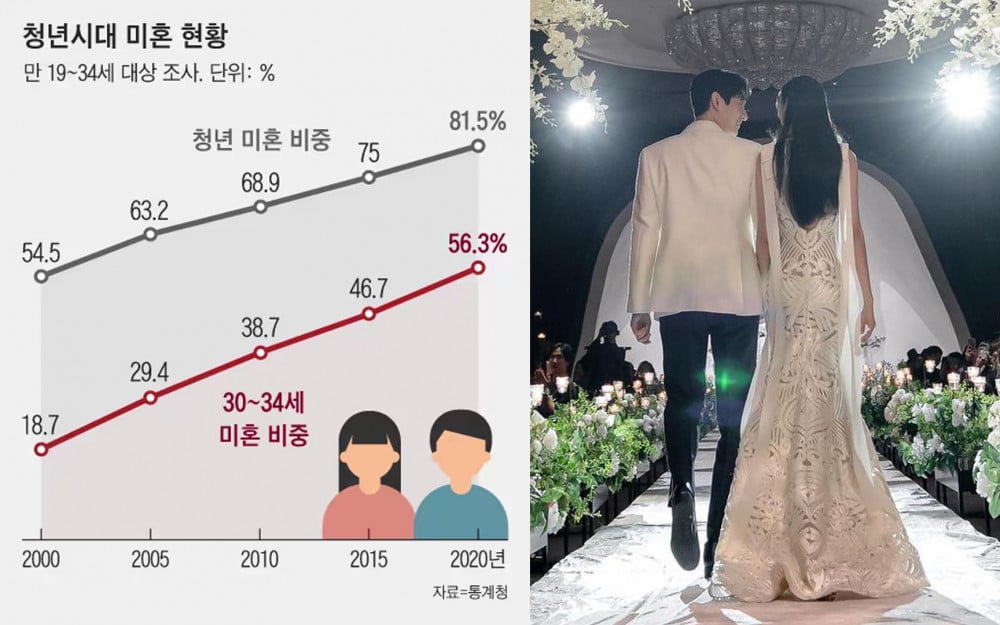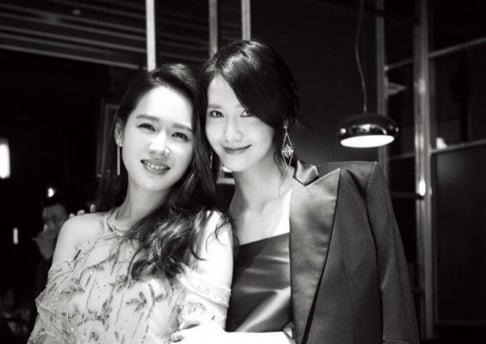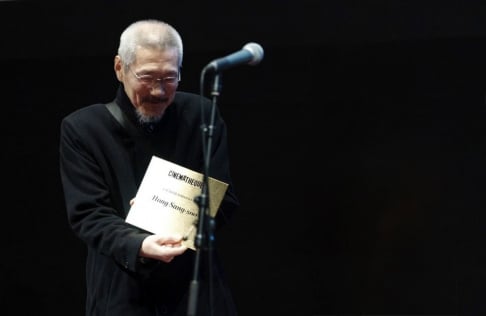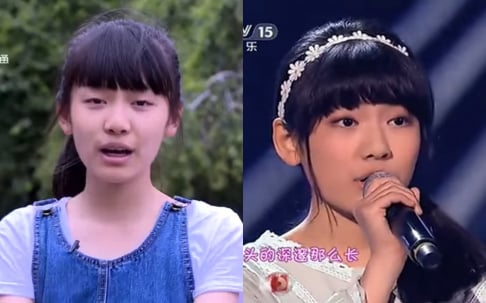
In 2020, South Korea's young adults, aged 19 to 34, numbered 10,213,000, accounting for 20.4% of the nation's population. This group experienced a notable decrease of 483,000 individuals, a 4.5 percentage point drop, over a period from 2015 to 2020. Forecasts from Statistics Korea present a concerning trend: the current youth demographic, slightly over 10 million, is projected to diminish by half in the next 30 years. By 2050, the population of young adults is anticipated to reduce to 5,213,000, representing just 11.0% of South Korea's total population.
The significant decline in South Korea's youth population is further accentuated by the notable fact that 81.5% of these young individuals remain unmarried. Data from Statistics Korea reveal that this is the first time the unmarried rate among the youth surpassed the 80% mark in their recorded history.
The dramatic rise in the unmarried rate within the 30-34 age group is of particular concern. This rate has escalated from 18.7% in 2000 to an alarming 56.3% in 2020, marking a threefold increase. For the 25-29 age bracket, the unmarried rate is currently at 87.4%. In contrast, back in 2000, the majority of individuals in their late twenties were already married.

The demographic trend in South Korea shows a significant shift, particularly among those in their late thirties (aged 35-39). Although not traditionally categorized as youth, this group's unmarried rate has quadrupled over two decades, rising from 7.2% to 30.7%. This reflects a broader pattern of young people either delaying marriage or opting out of it entirely, contributing to a notable rise in the average age at first marriage. By 2022, the average age for first-time marriage was 33.7 for men and 31.3 for women.
Correspondingly, there has been a substantial decline in the number of marriages, with a 41% decrease from 329,000 in 2011 to just 192,000 in 2022. Concurrently, the proportion of young individuals with a favorable view of marriage has decreased from 56.5% in 2012 to 36.4% in 2022.
Despite 96% of births in South Korea occurring within legally recognized marriages, the prevailing trend of avoiding marriage impacts the overall birth rate. The inclination among young couples to forgo having children is increasing, with the percentage rising from 46.4% in 2018 to 53.5% recently. The average age for first-time mothers has also ascended to 33.0 years.
These trends – delaying or forgoing marriage and opting not to have children – have contributed to a steep drop in South Korea's total fertility rate, which fell to 0.78 births last year, the lowest in the world.
Statistics Korea forecasts a modest recovery in the birth rate next year, following the historic low of 0.7. However, current trends suggest a strong possibility that this projection might not materialize. The persistent negative perceptions of marriage and childbirth, fueled by factors like competitive pressures, job insecurity, escalating housing costs, and substantial educational expenses, are leading to widespread reluctance towards marriage and persistently low birth rates in South Korea.
Korean netizens shared their opinions by commenting, "At this rate, the unmarried percentage will increase to 90%," "It's hard enough to take care of myself," "Even if they said that all unmarried women are going to die, I would rather die than get married," "Even if house prices come down, there will be more women opting to purchase those houses and live alone," "I think this percentage will continue to get worse," "The men in their 20s and 30s these days are too immature, who would want to marry them at that age?" "I don't even want to date let alone get married," "Look at society right now," "I was worried I was the only one not wanting to get married," and "People would be crazy to get married in the current state of the country."
 SHARE
SHARE


















































Home ownership and children are very expensive, and marriage isn't always financially beneficial.
10 more replies